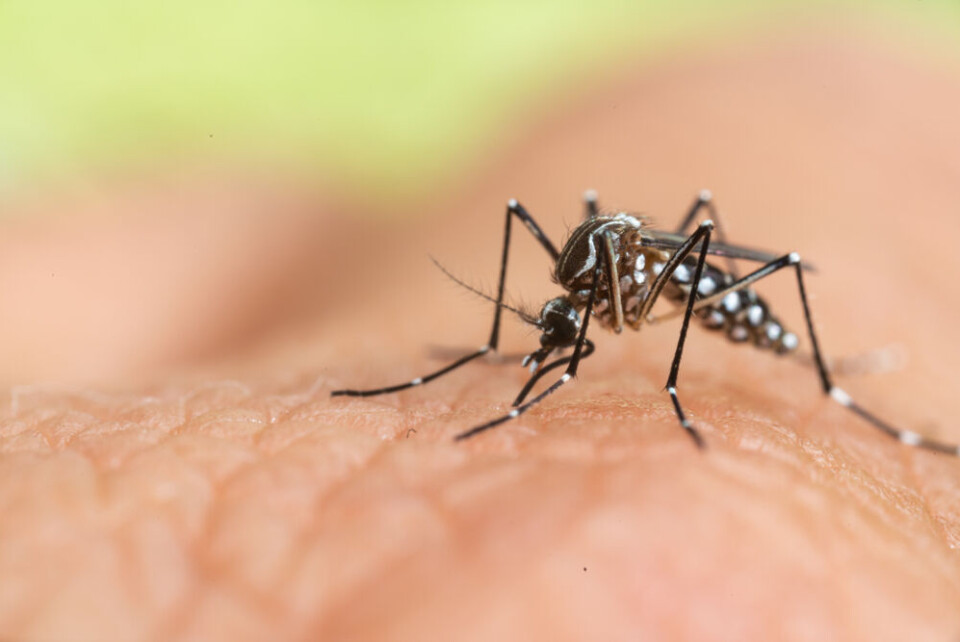-
Map: Are there new Michelin star restaurants near you in France?
The new Michelin Guide France 2025 awarded 78 new stars to restaurants across the country
-
What do Trump and other world leaders say about Le Pen office ban decision?
From ‘left-wing abuse of the legal system’ to ‘the rule of law’, reactions have been fierce
-
Burglaries: the French cities and towns most - and least - affected
New official stats have been released with significant geographical differences
Anti-mosquito spraying stopped by ecologists in southwest France
Activists said that the insecticide could also kill bees and aquatic life, but insect experts say spraying is the only way to reduce the risk to human health

An anti-mosquito operation in southwestern France has been cancelled after eco-activists protested against the intervention and claimed that the pesticide used is toxic.
The anti-mosquito spraying was scheduled to take place yesterday morning (Wednesday, September 6) in the streets of the commune of Saintes, in Charente-Maritime. It was aiming to rid the area of tiger mosquitoes.
However, the operation was stopped by around 30 ecologists, who said that the insecticide used was too dangerous for the local environment, and would damage plants and animals. The chemical used is called deltamethrin.
It was set to be sprayed overnight within a 150-metre radius in the neighbourhood. The area has many gardens, and tall grass, which can help the mosquitoes to spread.
However, the protestors said that the chemical is not selective enough, and would also kill bees, and aquatic life.
Benoît Biteau, an MEP for green party EELV, told BFMTV: “They stopped because they considered that the presence of these citizens, who were opposed to the [insecticide] spreading, was not safe in light of the danger of this chemical.
“All this just to kill mosquitoes…we have to be reasonable.”
‘This is the only way’
However, anti-mosquito expert Antoine Cohen admitted that the impact on the ecosystem is significant and that it would affect all insects. “There is no selective insecticide that only kills mosquitoes. This is the only way that exists,” he said.
He said that deltamethrin presents a very low risk to human health at the doses used. “It can be dangerous in large doses, but with an intervention like this…if you’re indoors and don’t get sprayed straight in the face, the risks are minimal”.
The anti-mosquito operation was organised by the department’s Agence Régionale de Santé (ARS) in a bid to rid the area of tiger mosquitoes, which can carry diseases such as dengue, chikungunya, or Zika.
Native cases of these illnesses (cases in which those affected became infected on French soil and had not travelled to a typical at-risk area) have become increasingly common in France, especially dengue.
Read more: France warns of increased risk of dengue fever from tiger mosquitoes
Read more: Alarm over massive rise of mosquito-spread diseases caught in France
‘Less controversial but less effective
Laurent Flament, director of the ARS Charente-Maritime, criticised the intervention’s cancellation.
He said: “We do it because it’s the only way to reduce a proven risk to human health. These are insecticides that are regulated by [health and safety agency] Anses, and used in set circumstances, overnight, within security perimeters, people informed [and warned to stay indoors], and with precautionary measures taken.”
The anti-mosquito intervention in Saintes has now been rearranged for another date, using another type of insecticide. The ARS says that this second type is less controversial but less effective.
The department’s ARS has carried out 75 such anti-mosquito operations since the start of the year. The spread of tiger mosquitoes across France has led many authorities to call for better nationwide support for more effective intervention against the insects.
Anti-mosquito interventions - where areas are sprayed with insecticides overnight, and local people warned to stay indoors - are becoming more frequent in France, including in inner cities such as Paris.
One took place two days ago in Puy-de-Dôme, near Clermont-Ferrand; while the ARS Occitanie frequently organises the interventions in its southern region, where tiger mosquitoes are even more common.
In a flyer template that it distributes in the local area ahead of a spray, the ARS Occitanie states that the “objective is to stop a chain of local contagion of these illnesses”.
It adds that the “products used are pyrethroid-based” and claims they contain the same active ingredients as those found in domestic mosquito repellent products available in pharmacies.
Tiger mosquitoes - originally from Southeast Asia - were first reported in France in 2004, and have quickly spread. As of January 1, 2023, they had been confirmed in 71 departments, and counting.
Read also
France faces rise in mosquito-borne diseases, warn health experts
Call for state action over growing issue of tiger mosquitoes in France
Tiger mosquitoes: How you can help stop their spread in France
























